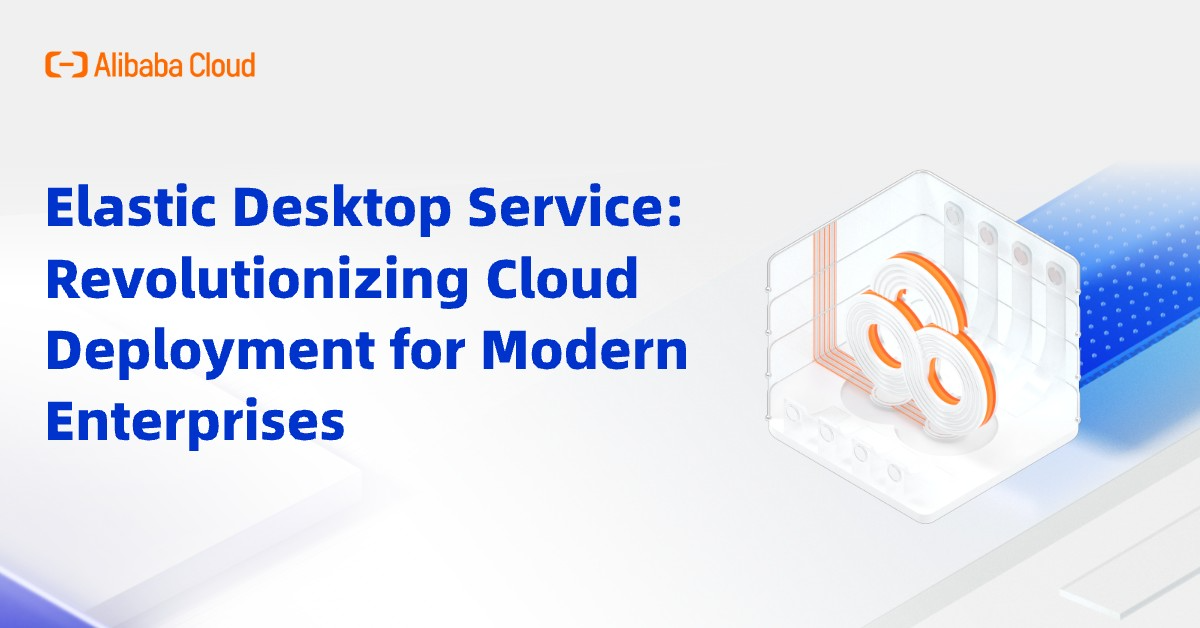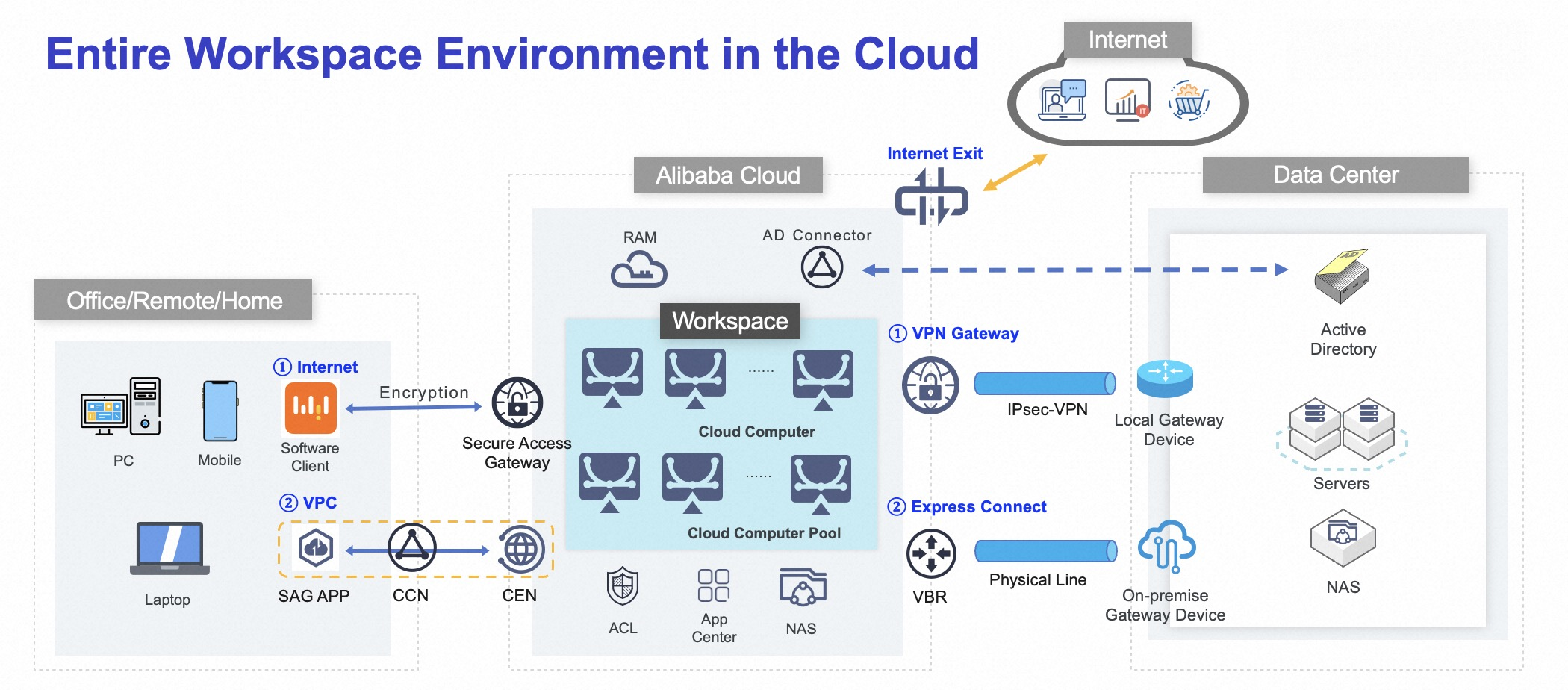Elastic Desktop Service: Transforming Cloud Deployment for Modern Enterprises
 Lara Lee
Lara Lee
With the rapid development of cloud computing technology, an increasing number of enterprises are embracing the cloud. Elastic Desktop Service(formerly known as Wuying Workspace), a key component of the Alibaba Cloud Workspace family, offers a new mode of working for enterprises. This service enables employees to easily access company resources, whether they are in the office, working remotely, or at home.
This blog post will explore the ease of deployment of Elastic Desktop Service and how it integrates with critical enterprise infrastructure.

Anywhere, Anytime, Any Network
Elastic Desktop Service stands out with its multi-location, multi-network access capabilities. Whether connecting through the internet or via a dedicated private VPC, users can effortlessly connect to the service. For internet access, users can access the cloud computer pool through software applications, web browsers, or hardware terminals provided by Alibaba Cloud. On the other hand, dedicated private VPC access supports endpoint or site-to-site VPN and dedicated lines to Alibaba Cloud, ensuring secure and stable data transmission.

Key Features
Elastic Desktop Service offers a wealth of features and benefits:
Elastic Expansion: Enterprises can quickly scale up computing resources during peak business hours and automatically reduce them during off-peak times to save costs.
Security: The service includes robust security measures such as watermarks, session recording, anti-screenshot protection, and peripheral control to safeguard enterprise data.
Cost-Effectiveness: IT expenses are reduced by eliminating the need for physical hardware maintenance and upgrades.

Seamless Integration with Enterprise System
Elastic Desktop Service can effortlessly integrate with existing enterprise infrastructure, thanks to Alibaba Cloud's CEN (Cloud Enterprise Network) or dedicated lines. This integration allows the service to connect with enterprise-owned data centers (on-premises or other cloud hosting solutions), NAS storage, and other resources. The integration facilitates single sign-on (SSO) and simplifies file sharing and on-premises application access.
Flexible Identity Authentication Solutions
Enterprises can choose appropriate identity authentication solutions based on their specific needs. If maintaining the original Active Directory service is required, the single sign-on function of Elastic Desktop Service can be utilized. Alternatively, if integrating Elastic Desktop Service into the company's AD domain is necessary, the AD Connector add-on can be employed. This approach enables centralized management and control of user permissions and unified management of both on-premises and cloud desktops.

Figure 1: How to build a workspace environment in the cloud with EDS
Conclusion
In summary, Elastic Desktop Service, with its convenient deployment methods and powerful inter-site communication capabilities, brings unprecedented flexibility and efficiency to enterprises. Whether in an office environment or for remote collaboration, Elastic Desktop Service can meet various scenario requirements. If you are looking for an efficient and secure work solution, give Elastic Desktop Service a try!
Learn more about Elastic Desktop Service: Alibaba Cloud Elastic Desktop Service
Subscribe to my newsletter
Read articles from Lara Lee directly inside your inbox. Subscribe to the newsletter, and don't miss out.
Written by

Lara Lee
Lara Lee
Passionate about Alibaba Cloud! Sharing insights, updates, and tips to help you navigate the world of cloud computing with Alibaba Cloud. Join me as we explore the latest innovations, best practices, and success stories from one of the world's leading cloud service providers.